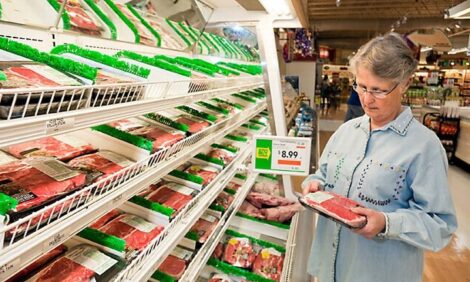



BSE testing: What does the customer want?
US - Last week we looked at the arguments that have been put forward by the USDA, the National Cattleman's Beef Association, and others in support of the USDA action denying Creekstone Farms the right to conduct BSE tests on all of the cattle that are processed at its plant.On February 19, 2004, Creekstone Farms submitted a request to USDA to be allowed to conduct private BSE testing at their plant in Arkansas City, Kansas. Creekstone decided to voluntarily test all of its beef for BSE in order to regain its Japanese customers who pulled out of the U.S. market following the discovery of an animal in the U.S. with BSE on December 23, 2003. The Japanese importers have indicated a willingness to cover the extra costs of the BSE testing.
Creekstone proposes to use the same rapid-results BSE test that being used by the French and Japanese to test 100% of their beef slaughter. Personnel in the plant have already been trained in the procedures necessary to conduct the testing. Some have even been sent to France to watch the testing in operation and learn what they can.
Despite the fact that the USDA argues that the testing of animals younger than 30 months is scientifically unnecessary, two animals in Japan and at least one in Europe younger than that have been found to be infected with BSE. The current testing procedures would not have caught those animals and segregated their meat from the food supply.
Source: Agriculture Online


